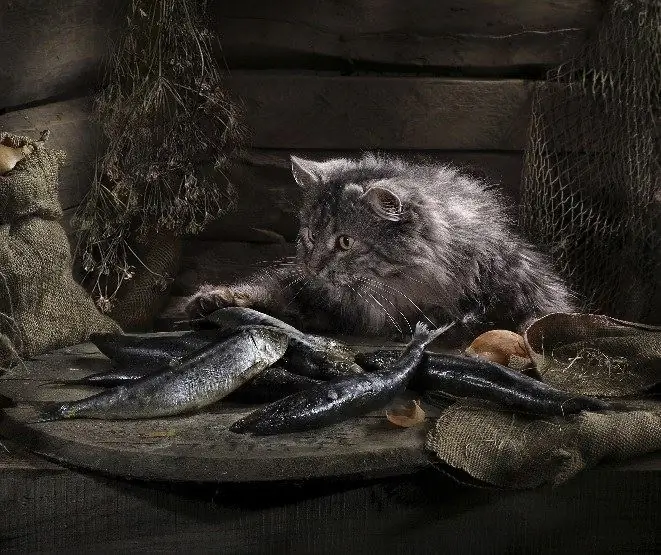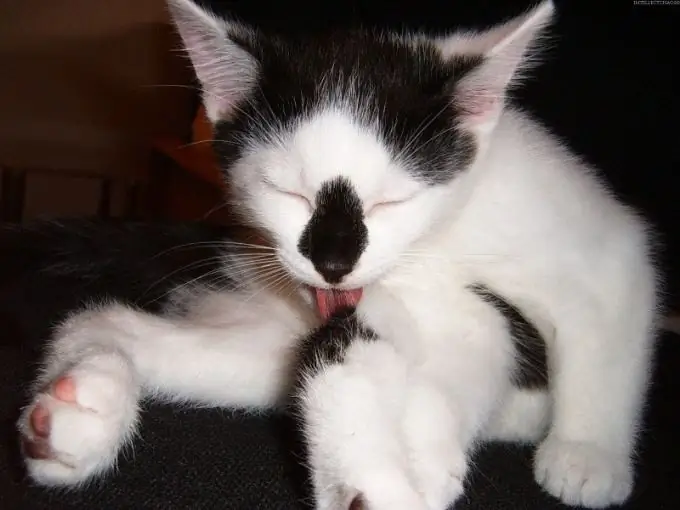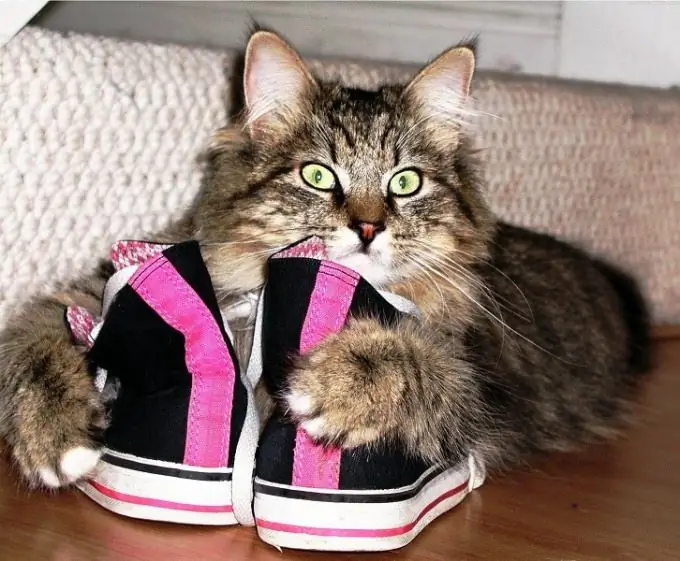- Author Delia Mathews mathews@animalspeace.com.
- Public 2023-12-16 00:05.
- Last modified 2025-01-22 15:45.
Despite the fact that the cat became one of the first domestic animals tamed by man, she manages to fully preserve all the habits and preferences inherent in her wild brethren. In nature, the main source of essential nutrients for this predator are mice, rats, birds, but wild cats rarely eat fish. Therefore, a cat who loves fish is the exception rather than the rule.

Features of the cat's diet

Dry and canned food for cats, of course, is more convenient for the owners, they do not have to think about the composition of the products, since the finished menu is already balanced and contains all the necessary nutrients. But it has already been proven that natural food is more natural and less harmful for cats.
The main part of the cat's diet should be meat and meat products, their total volume should be at least 80%, the remaining 20% should be a variety of additives: dairy products, vegetables, vegetable oil and, including fish. From this category of products, cats can only be given sea fish of fatty varieties; in this capacity, the bellies of salmon, salmon, trout are perfect. They contain a lot of vitamins E and D, necessary for a beautiful silky and shiny skin and a strong skeleton of an animal. You can also give boned Pacific herring, mackerel.
The rare endogenous vitamin K contained in fish is synthesized in the cat's body not from fish, but from other foods. Therefore, there is no need to give her fish as a source of this vitamin.
If a cat refuses fish

The first reason is that a cat may not eat fish simply because she does not like it. And, if you can still be persuaded to eat something tasteless, guided by the benefits, you can only waste time on persuading the cat. However, like all predators, cats' appetite is played out at night. Therefore, it is quite possible that in the morning she will eat everything that she refused during the day, you should not immediately remove the fish from her bowl.
On the other hand, many have heard about the special sensitivity of cats to the quality of food. With this in mind, a cat may refuse fish simply because it has not passed its quality control. The quality of the fish component in dry food leaves much to be desired - very often fish bone meal, which is high in phosphorus and magnesium, is added to them along with pieces of fish. They can provoke diseases of the urinary tract or kidneys in the animal.
Wet fish food can cause thyroid dysfunction in cats over 7 years of age and can lead to diseases such as hyperthyroidism.
In addition, there are many substances in fish that cause or increase allergies and inflammation in the cat's body. Certain types of fish, such as tuna, ocean whitefish and king mackerel, from which waste is used to prepare cat food, are products of limited use due to the high degree of contamination with heavy metal salts.






